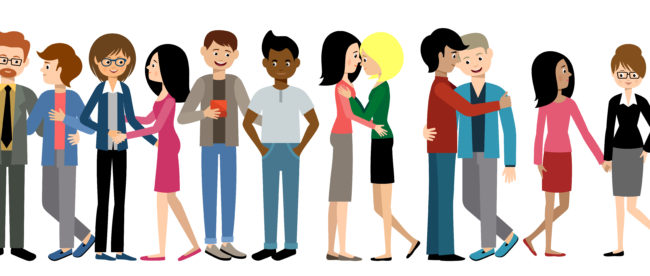LGBT rights in French companies

According to the latest Human Rights Campaign survey, 31% of lesbian, gay, bisexual and transgendered (LGBT) people say they are depressed or unhappy at work, and 46% of them are afraid to “come out” at work. job. More and more companies are taking steps to change this situation, particularly in a context where society is becoming more and more open to these issues. How are French companies reacting to this change and what is the current situation for LGBT employees in France?
Strong business interest in valuing LGBT rights
The wider societal context has strongly encouraged French companies to review and update their LGBT policies even if they are also subject to certain laws and regulations concerning individual rights at work, especially with regard to sexual discrimination. The European anti-discrimination directive of 2000, which mentions sexual orientation, has led to a consequent hardening of French law. The emergence of CSR (Corporate Social Responsibility) policies has also promoted the empowerment of large groups in this area.
However, beyond these legal and ethical motivations, companies also have self-interest in highlighting values of tolerance and diversity to reinforce their employer brand image. In a context of a shortage of talent in certain economic sectors, this positive reputation for tolerance and diversity can even be crucial in attracting more diverse profiles. Some major groups such as L’Oréal, Pfizer, Orange and Airbus were quick to understand this, and signed up to the LGBT + Other Circle Commitment Charter which seeks to promote tolerance and diversity in the workplace.
This type of approach typically involves the management of the company making a public commitment to diversity, with the idea of leading by example essential in this approach. In practice this means that senior management often express open support for LGBT networks within the company and/or require all employees to sign up to a code of conduct which explicitly mentions the term “LGBT”.
Innovative HR policies
Many companies, again this is particularly true for large groups, are putting in place a real human resources policy to cater for this issue. IBM, for example, organizes awareness-raising training on these issues, on hiring and throughout the career of the company’s employees. These HR policies generally highlight the need for employees of all sexual orientations to have equal access to parental and conjugal rights and duties (mutual benefits, leave, pension plans, etc.). Before the legal recognition of LGBT couples, those couples were often unable to benefit from joint access to the company health insurance scheme.
In addition, an in-house support system for victims of discriminatory acts or remarks is sometimes put in place. For example, a “diversity” representative can be put in place to better manage this type of incident. Some companies, like PwC, an audit firm, have set up a referral outside the company. The latter can thus conduct independent internal investigations when discrimination is reported, and apply very specific sanctions.
Progress still uncertain
While more than 80% of Millennials, LGBTs and non-LGBTs alike, consider the employer’s practices in terms of diversity and equal opportunity as an important factor in their job search, it is still difficult to measure the effects of the policies recently put in place in this area. So, although the LGBT + Commitment Charter is gaining more and more business signatures, the French elite remain very reluctant to publicize their sexual orientation and unfortunately no major French economic leader has come out as yet.

